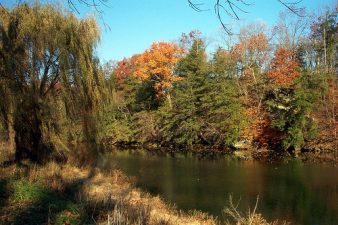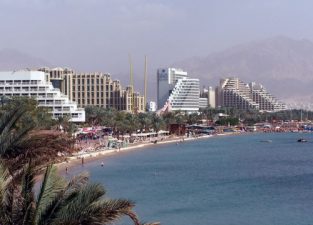You’d think that the Organization of Petroleum Exporting Countries (OPEC) in the Persian Gulf would have nothing to do with alternative energy initiatives, right? Since they have close to a quarter of the global petroleum reserves literally underfoot, you might assume that they’d try to prevent the development of alternatives, or at least not be interested in using them. It turns out, however that even the oil rich Gulf is diversifying the energy sources beyond fossil fuels, both for business diversification and as a result of real need.
Selling off natural resources
The Gulf Cooperation Council (GCC) countries are facing increasing shortages in domestic energy supply, and their economies depend on selling petroleum to other countries rather then burning it for their own needs. Many of these countries face gas shortages, and they recognize that petroleum supplies are finite and need to be managed wisely and husbanded for the future.
One way of supplying this power is through renewable energy sources like sun and wind. Saudia Arabia, Oman, Dubai and Kuwait all have programs to promote and develop solar and wind power farms, solar powered desalination, more efficient use of oil through fuel cells, carbon sequestration, oil gasification, and green building. The city of Masdar in Abu Dhabi aims to be the first carbon neutral area in the world through clean energy initiatives and cooperation with the Massachusetts Institute of Technology.
Peter Barker-Homek, chief executive of Abu Dhabi’s National Energy Company (TAQA) described his available alternatives to oil and gas:
“. . . you start looking at clean coal, and nuclear power is also something that has to be in the global energy mix. In the countries that have run good nuclear programs, they are remarkably safe. We still don’t have a resolution as to what you do with the depleted uranium at the end of its life cycle.
Solar, thermal — perfect in the Gulf
“But in a world that is oil constrained, keeping that barrel of oil so you can get a refined product is extremely valuable. Renewables will only account for 10% to 20% of any country’s energy mix, though solar or thermal power, if it’s going to be perfected anywhere, is going to be perfected in the Gulf. The amount of sunlight in a day makes it a perfect environment. ”
Alternative or renewable energy technologies are growing and present an opportunity for investors, but will become a real solution only when they become cost effective and widespread, according to Forbes.com. Demand for petroleum is still increasing worldwide, especially in the developing world led by China and India, and they will not switch away from their use of oil unless the alternative is competitive.
Western economies can help this process along by making clean technologies more attractive for investment and innovation, first by reducing the subsidies for the oil companies, next by taxing “dirty” fossil fuels. Finally they can also give carefully selected incentives to alternative technologies until they reach maturity in large scale applications and low cost.
And who knows? Maybe the answer to GCC (Global Climate Change) will come from the GCC.
UPDATE: more detailed coverage on this issue in this article from The National, Abu Dhabi
::GCC States to harness winds of change – Emirates Business 24/7
::Guiding Abu Dhabi Through Energy Storm
More clean technology stories on Green Prophet:
Green Prophet: Oil Barons See Green Oil Fields in Clean Technology
Green Prophet: Mei Eden’s Wind Power Initiative
Green Prophet: Solar Power Plant in the Negev
Green Prophet: Google and Ormat: Power Partners?
(Image Credit: Flickr, Units of G)





The founder of Galfar company in Oman,Dr P Mohamed ali, has many diversifies business in India, UAE, OMan etc. here’s a PPT of all the businesses carried out by galfar and Mfar:http://www.authorstream.com/Presentation/anusha128822-2279877-work-done-dr-mohamed-ali/